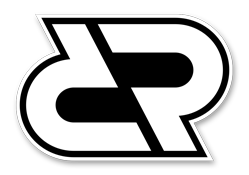2:12 PM PDT 6/30/2016 by Paul Bond Paul Bond
More than half of the 50 stocks tracked by THR fell short of the S&P 500 in the year’s first-half.
Hollywood’s big media stocks took a beating during the first half of the year, but the carnage could have been much worse if some major companies weren’t propped up by speculation about dealmaking.
More than half of the 50 stocks tracked by The Hollywood Reporter fell short of the S&P 500 in the year’s first-half. That index managed a 2.7 percent gain, despite a wicked, short-lived downturn after the U.K. voted to ditch the European Union.
But what kept some big names alive was M&A talk — and Thursday’s big Lionsgate/Starz deal is the perfect example. Leading the charge downward was Lionsgate, whose shares fell a whopping 38 percent since the start of the year. But, acquisition target Starz fell 11 percent, and that could have been much steeper given it gained 6 percent after the deal was announced.
Other big losers thus far include Twitter, down 27 percent, Netflix (off 20 percent), AMC Networks (down 19 percent), Imax (off 17 percent), Dish Network (down 9 percent) and Apple (also down 9 percent).
“Sentiment is horrific,” says Wunderlich Securities analyst Matthew Harrigan. “Many of these companies can grow as fast as the U.S. economy long-term, that is to say relatively slowly in to mid single digits, but are priced at a discount to the market.”
Part of the reason for that are the challenges faced by the TV industry, with competition from digital services, fragmentation, cord-cutting and cord-shaving, the rising costs of sports and other programming, etc.
Disney, which sent the entire entertainment into a funk 10 months ago with its declaration that ESPN was losing subscribers, closed the half-year down 7 percent, and was the worst performer among the seven big conglomerates.
The best of the Big Seven was Sony, up 19 percent. Comcast was next, up 17 percent, in part because analysts are bullish about its pending acquisition of DreamWorks Animation. CBS was next at 16 percent and Time Warner was after that, up 15 percent, benefiting from constant rumors it is an acquisition target.
Viacom mustered a 2 percent gain during the first half of the year, despite a legal fight for control that pits chairman emeritus Sumner Redstone and his daughter Shari against CEO Philippe Dauman and other board members.
21st Century Fox is flat so far this year.
“Entertainment stocks mostly seem to have been range-bound at the half-year- mark, but so have been the broader market indices,” said Tuna Amobi of S&P U.S. Equity Research Services. “The recent sell-off could lend support for the first-half earnings-per-share growth via accelerated share buybacks.”
The big winner was DreamWorks Animation, up 59 percent after Comcast’s NBCU agreed to buy the company behind Shrek and Kung Fu Panda.
TiVo rose 14 percent, also due to a merger announcement. The DVR pioneer is being acquired by Rovi, best known for its on-screen TV guides.
Also faring well were the movie exhibition companies, despite expected challenges with this summer’s slate. Again, consolidation (or perceived consolidation, at least), is one reason for bullishness.
Carmike Cinemas has received a buyout offer from AMC Entertainment, and the former is up 31 percent while the latter is up 16 percent so far this year. Regal Entertainment shares are up 19 percent and Cinemark’s are up 11 percent.
Source: Hollywood Reporter – Top Story





